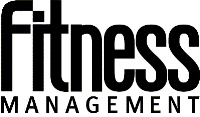
What is a dream member? Cynical types would say it’s the member who joins, pays dues on time and never shows up at the club. Of course, those cynics don’t realize that that doesn’t describe a dream member at all. Think about it: The only way members will yap about a fitness center’s awesomeness is if they show up, work out and get fit. Otherwise, they’ll just complain about what a waste of time a gym membership is. And that’s the stuff of nightmares, not dreams.
Dream members are active, invested members of the fitness center. They care about the facility, its staff and other members. They want more than to secure their own health — dream members want the club to be healthy, too.
Take the two Canadian members who sprinted down a would-be car thief outside their fitness facility. One member heard a car alarm blasting in the parking lot and spotted a suspicious man. When the man bolted, the member ran after him. Another member joined the pursuit. The two chased the suspect until they caught him, then held him until police arrived.
Sounds like someone deserves a comp on a month’s worth of membership dues.
An Oak Park, Ill., exerciser owes his life to a few dream members. When Richard Prescott collapsed at Fitness Formula, eight members and Manager Jeff Long started CPR, called 911 and used an automatic external defibrillator before paramedics arrived. Let’s hear it for David Muzic, Amy Mozina, Max Vanmany, Joe DiCianni, Lisa Gregorich, Kristen Stafford, Dave Harrat and Chris Jaeger.
They’ve earned a few free personal training sessions, wouldn’t you say?
You’ve probably got a few dream members at your fitness center, too, but you just don’t know it yet. And that’s probably a good thing, since they seem to come out in emergencies — and it’s best for everyone to avoid those.



